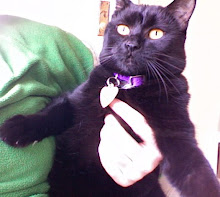In writing class last night, we were asked to think about a story we read when we were very young that had an impact on us, and do some freewriting based on that question. This is what I wrote.
I believe I was 8 when I first read Harriet the Spy by Louise Fitzhugh. I am 38 now, and the fact that I can remember the author of a book I read 30 years ago is telling. I believe this book had a great impact on me because it may have been the first time I fell so deeply into a written text that I experienced serious emotional highs and lows alongside the main character.
The protagonist in the story, Harriet, is a young girl who keeps a notebook. It is full of her private thoughts and observations, uncensored and unedited. When she writes in the notebook, she is utterly exposed. Much of her writing is about her peers and neighbors, and the foibles that make them human. It can be critical, and intrusive. She does carry tools to spy on others, and in this spying violates their privacy. But I related to her, because I felt that she was simply trying to figure other people out. And as an 8 year-old girl, I found other people somewhat hard to figure out. I was more of an observer than participant in many things kid – especially those with a social or group component, or anything involving risk-taking. I was not a writer then, so much, though I suppose I dabbled in journals and I'm fairly certain that I acquired a notebook exactly like the one used by Harriet after reading the book. But I, too, was trying to figure those ever mysterious people out.
When Harriet's notebook gets taken away, or lost, or left behind, and falls into the hands of her friends, there is a tremendous backlash. They read it, and see her criticisms and comments on themselves and their private actions, and they are furious. So they shun her, and mistreat her, and punish her for what she has done. So not only is she without her notebook (I believe she may also receive punishment from her parent or caregiver and not be allowed a new notebook), she is even more isolated than before.
Of course, in the end, she learns a lesson about privacy and friendship and how one must treat others and respect them. She is welcomed back into the fold of her small group of friends. She is lifted from what was truly a depression, and as the reader, so was I. As an adult looking back, however, I wonder about that notebook, and whether the lesson might also be something like “do a better job of hiding your notebook.” Because I still feel confused and isolated and like I want to write down what I see and hear people doing to try to make sense of it. I still feel on the outside of the group, and uncomfortable in social and risk-taking circumstances. Not the same as in childhood, certainly, but in some ways even more deeply than I used to. The relief for me now is my ability to connect with those close to me on these very feelings, ranging from depression about our national leadership to amusement and irritation over road rage drivers. As a 38 year-old, were someone to take away my notebook, I might not recover.
Subscribe to:
Post Comments (Atom)




No comments:
Post a Comment